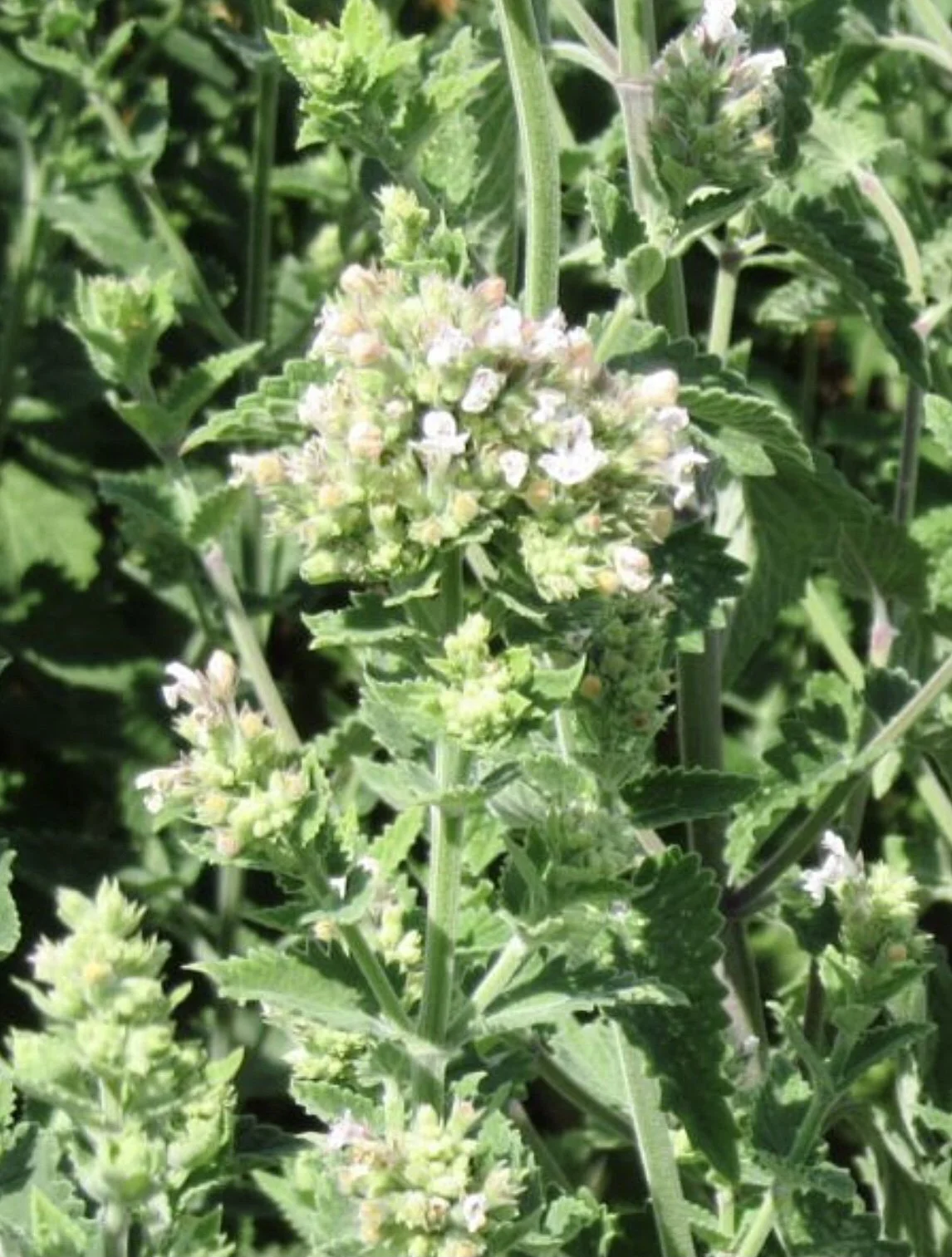Lemon Catnip
Lemon Catnip
LEMON CATNIP SEEDS
Nepeta cataria ssp. citriodora
ORGANIC
This lemon-scented catnip isn't for cats. In fact, it's the perfect alternative for gardeners whose medicinal catnip plants are subject to massacre by local felines, and it makes for a much tastier tea.
This species makes a very soothing cup of tea or medicinal tincture, to the degree that it was frequently prescribed for teething children. This lemon-scented subspecies is considerably more palatable than standard catnip, but may or may not be safe to administer to children. Recommended for adult use only. Researching the pediatric applications of true catnip is highly recommended to new parents! Take care to use only organically grown and processed herbs with young children.
Seeds are best sown indoors 8 weeks before transplanting. To germinate: press seeds into moist, well-drained soil, barely covering with additional soil or fine vermiculite and mist generously. Kept moist at cool room temperature in bright light, seeds should germinate within 2 to 4 weeks. Germination can be erratic, so be patient. Some lots germinate best with light stratification. Avoid excessive heat. Once sprouted, prick out seedlings to grow on in individual containers or cells in bright light with good air circulation. Catnip seedlings are very susceptible to damping off.
Requires full sun and well-drained soil to thrive. Do not fertilize catnip and water only until plants are established. Keep trimmed to stop flowering. If not used for tea, cuttings should be sprinkled throughout the Brassica bed to help deter cabbage moths. Will overwinter in most northern zones if given proper drainage.
Drying catnip for tea is easy: cut several long stems, bundle and hang to dry in a well-ventilated dark room, or in a paper bag. When dried completely, crumble leaves gently and place into an airtight container.
Combine catnip with chamomile, lavender, and lemon balm for a delightfully soporific bedtime tea.
Packet contains at least 500 seeds.
